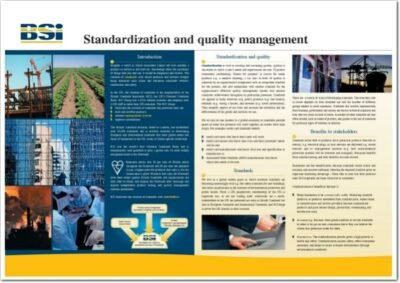Corporate Social Responsibility (CSR) auditing has emerged as a critical component in the landscape of modern business practices. As companies increasingly recognise their role in society, CSR auditing serves as a systematic evaluation of their social, environmental, and ethical performance. This process not only assesses compliance with established standards but also evaluates the effectiveness of CSR initiatives in achieving their intended outcomes.
The concept of CSR itself has evolved significantly over the past few decades, transitioning from a mere philanthropic endeavour to a strategic imperative that influences corporate reputation, stakeholder engagement, and long-term sustainability. The rise of CSR auditing can be attributed to several factors, including heightened consumer awareness, regulatory pressures, and the growing demand for transparency in corporate operations. Stakeholders, including investors, customers, and employees, are now more informed and concerned about the ethical implications of business practices.
Consequently, companies are compelled to demonstrate their commitment to social responsibility through rigorous auditing processes that provide insights into their CSR activities. This article delves into the significance of CSR auditing, the methodologies employed, and the various challenges and opportunities that lie ahead in this evolving field.
Summary
- CSR auditing is a process of evaluating a company’s social and environmental impact and performance.
- CSR auditing is important for businesses to demonstrate their commitment to ethical and sustainable practices.
- The process of conducting a CSR audit involves assessing the company’s policies, practices, and performance against established standards and benchmarks.
- Key areas of focus in CSR auditing include environmental impact, labour practices, human rights, and community engagement.
- Stakeholders play a crucial role in CSR auditing by providing input, feedback, and accountability for the company’s social and environmental impact.
The Importance of CSR Auditing in Business
The importance of CSR auditing cannot be overstated in today’s corporate environment. As businesses operate within a complex web of social expectations and regulatory frameworks, CSR audits provide a structured approach to assess and enhance their social responsibility efforts. By systematically evaluating their practices, companies can identify gaps in their CSR strategies and implement necessary improvements.
This proactive approach not only mitigates risks associated with non-compliance but also fosters a culture of accountability within the organisation. Moreover, CSR auditing plays a pivotal role in enhancing corporate reputation. In an era where consumers are increasingly inclined to support brands that align with their values, a robust CSR audit can serve as a powerful tool for building trust and loyalty.
Companies that transparently report their CSR activities and demonstrate genuine commitment to social and environmental issues are more likely to attract and retain customers. Furthermore, investors are increasingly considering CSR performance as a criterion for investment decisions, making it essential for companies to showcase their commitment to sustainable practices through comprehensive audits.
The Process of Conducting a CSR Audit

Conducting a CSR audit involves a systematic process that typically begins with defining the scope and objectives of the audit. This initial phase is crucial as it sets the foundation for the entire audit process. Companies must determine which aspects of their operations will be evaluated, whether it be environmental impact, labour practices, community engagement, or ethical governance.
Once the scope is established, the next step involves gathering relevant data and information from various sources, including internal documents, stakeholder feedback, and industry benchmarks. Following data collection, the analysis phase commences. This involves assessing the gathered information against established CSR standards and best practices.
Auditors may employ various methodologies, such as qualitative assessments through interviews and surveys or quantitative analyses using performance metrics. The findings from this analysis are then compiled into a comprehensive report that highlights strengths, weaknesses, and areas for improvement. This report serves not only as an internal tool for management but also as a communication piece for external stakeholders who seek transparency regarding the company’s CSR efforts.
Key Areas of Focus in CSR Auditing
When conducting a CSR audit, several key areas warrant particular attention. One of the primary focuses is environmental sustainability. Companies are increasingly held accountable for their ecological footprint, necessitating an evaluation of practices related to resource consumption, waste management, and emissions reduction.
Auditors assess whether companies have implemented effective environmental policies and whether they are making tangible progress towards sustainability goals. Another critical area is labour practices and employee welfare. This includes evaluating workplace conditions, employee rights, diversity and inclusion initiatives, and overall job satisfaction.
A thorough audit will examine whether the company adheres to labour laws and ethical standards while fostering a positive work environment. Additionally, community engagement is an essential aspect of CSR auditing; companies must assess their impact on local communities and evaluate the effectiveness of their philanthropic initiatives. By focusing on these key areas, auditors can provide valuable insights that drive meaningful change within organisations.
The Role of Stakeholders in CSR Auditing
Stakeholders play an integral role in the CSR auditing process, influencing both the scope of the audit and its outcomes. Engaging stakeholders—such as employees, customers, suppliers, investors, and community members—ensures that diverse perspectives are considered during the audit. Their input can provide valuable insights into how the company’s operations are perceived externally and highlight areas where improvements may be necessary.
Furthermore, stakeholder engagement fosters transparency and accountability. When companies involve stakeholders in the audit process, they demonstrate a commitment to listening to concerns and addressing issues that matter to their audience. This collaborative approach not only enhances the credibility of the audit findings but also strengthens relationships with stakeholders.
By actively seeking feedback and incorporating it into their CSR strategies, companies can create more effective programmes that resonate with their stakeholders’ values and expectations.
The Benefits of CSR Auditing for Companies

The benefits of CSR auditing extend far beyond mere compliance; they encompass a range of strategic advantages that can significantly enhance a company’s overall performance. One of the most notable benefits is improved risk management. By identifying potential vulnerabilities in their CSR practices through audits, companies can proactively address issues before they escalate into crises.
This not only protects the company’s reputation but also mitigates financial risks associated with non-compliance or negative public perception. Additionally, CSR auditing can lead to enhanced operational efficiency. By evaluating current practices against best-in-class standards, companies can identify inefficiencies and implement changes that streamline operations while reducing costs.
For instance, an audit may reveal opportunities for energy savings or waste reduction that not only benefit the environment but also improve the bottom line. Furthermore, companies that prioritise CSR auditing often experience increased employee engagement and retention rates. Employees are more likely to feel proud of working for an organisation that demonstrates social responsibility, leading to higher morale and productivity.
Challenges and Limitations of CSR Auditing
Despite its numerous advantages, CSR auditing is not without its challenges and limitations. One significant hurdle is the lack of standardisation in CSR reporting frameworks. With various guidelines available—such as the Global Reporting Initiative (GRI), ISO 26000, and others—companies may struggle to determine which standards to adopt for their audits.
This inconsistency can lead to confusion among stakeholders regarding what constitutes effective CSR practices. Moreover, there is often a gap between reported CSR activities and actual performance on the ground. Companies may engage in ‘greenwashing’, where they exaggerate or misrepresent their social responsibility efforts to enhance their public image without making substantive changes to their practices.
This discrepancy can undermine the credibility of CSR audits if not addressed adequately. Additionally, resource constraints may limit smaller organisations from conducting comprehensive audits or implementing recommended changes effectively.
Future Trends in CSR Auditing
As businesses continue to navigate an increasingly complex landscape of social responsibility expectations, several trends are emerging in the realm of CSR auditing. One notable trend is the integration of technology into auditing processes. Advanced data analytics tools and artificial intelligence are being utilised to enhance data collection and analysis capabilities, allowing auditors to gain deeper insights into company performance more efficiently.
Another significant trend is the growing emphasis on impact measurement. Stakeholders are demanding more than just reports on activities; they want evidence of tangible outcomes resulting from CSR initiatives. As a result, companies are beginning to adopt methodologies that focus on measuring social impact alongside traditional performance metrics.
This shift towards impact-driven auditing will likely reshape how organisations approach their CSR strategies in the future. Furthermore, there is an increasing recognition of the interconnectedness between global challenges—such as climate change, inequality, and human rights—and corporate responsibility. As such, future CSR audits may place greater emphasis on assessing how companies contribute to addressing these pressing issues on a global scale.
By aligning their strategies with broader societal goals, businesses can enhance their relevance and resilience in an ever-evolving marketplace. In conclusion, while challenges remain in standardising practices and ensuring authenticity in reporting, the future of CSR auditing appears promising as organisations strive for greater accountability and transparency in their operations.
Corporate Social Responsibility (CSR) Auditing is a crucial aspect of ensuring that businesses are operating ethically and sustainably. It involves assessing a company’s impact on society and the environment. In a related article on ASOS, a leading online fashion retailer, their commitment to CSR is evident in their efforts to reduce their carbon footprint and promote ethical sourcing practices. This highlights the importance of CSR auditing in holding businesses accountable for their social and environmental responsibilities.
FAQs
What is Corporate Social Responsibility (CSR) Auditing?
Corporate Social Responsibility (CSR) auditing is a systematic evaluation of a company’s social and environmental performance. It involves assessing the company’s adherence to ethical standards, legal requirements, and international norms related to social and environmental responsibility.
Why is CSR Auditing important?
CSR auditing is important as it helps companies to identify and address any social or environmental issues within their operations. It also helps to build trust with stakeholders, improve reputation, and demonstrate a commitment to sustainable and ethical business practices.
What are the key components of CSR Auditing?
The key components of CSR auditing include assessing a company’s impact on the environment, its treatment of employees, its relationships with suppliers and customers, its community involvement, and its adherence to ethical and legal standards.
Who conducts CSR Audits?
CSR audits can be conducted by internal teams within a company or by external auditors who specialize in social and environmental responsibility. Some companies also engage third-party organizations to conduct independent CSR audits.
What are the benefits of CSR Auditing?
The benefits of CSR auditing include improved risk management, enhanced reputation, increased transparency, better relationships with stakeholders, and the identification of opportunities for cost savings and operational efficiencies.
How is CSR Auditing different from financial auditing?
CSR auditing focuses on evaluating a company’s social and environmental performance, while financial auditing focuses on assessing a company’s financial statements and accounting practices. While financial auditing is mandatory for many companies, CSR auditing is voluntary but increasingly seen as essential for sustainable business practices.
 Standardization and quality management (PDF)
Standardization and quality management (PDF)  Continuous improvement within an organisation (MP3)
Continuous improvement within an organisation (MP3)  Responding to an Emerging Market (PDF)
Responding to an Emerging Market (PDF)  How the role of marketing drives business forwards (PDF)
How the role of marketing drives business forwards (PDF) 